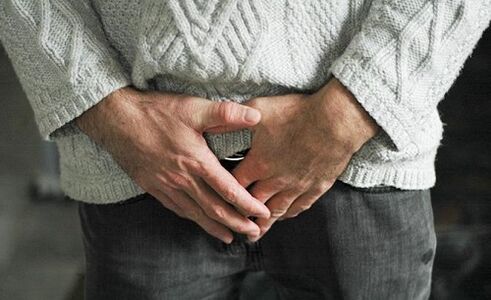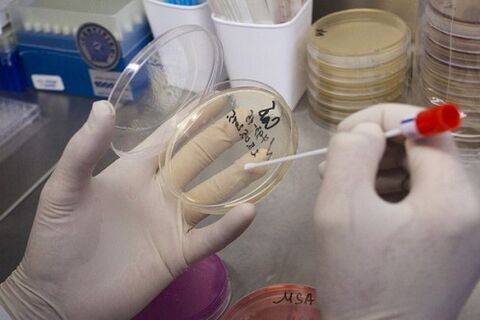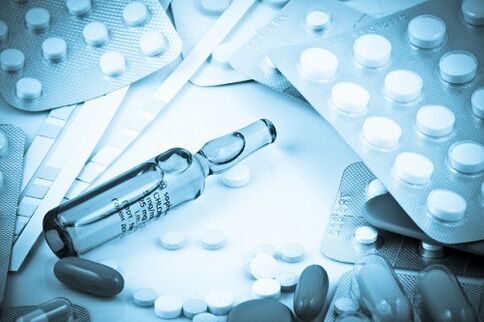The urogenital system of men is prone to the development of inflammatory processes related to the exposure of tissues of the organs of the pathogenic microflora. Failure to follow hygiene rules, unprotected sex, weakened immunity, and lack of regular sports activities are all factors that cause prostate stagnation and inflammation.

Symptoms of acute prostatitis are the basis of immediate medical attention, and the chronic form of the disease requires constant monitoring.
Therapy for various forms of prostatitis
To date, doctors use certain treatment regimens to treat inflammatory prostate disease. The choice of drugs depends largely on the form of prostatitis and the extent of the symptoms.
In the case of acute inflammation, fast-acting drugs with antibacterial properties are recommended.
The doctor should prescribe treatment after examining and determining the type of microorganisms that cause inflammation in the prostate. Sometimes, in the case of acute symptoms, antibacterial medications are prescribed immediately when the patient comes into contact. In the future, after receiving the results of the laboratory test, your urologist may prescribe another drug for prostatitis.

The designation of one or the other type of antibiotic is based on the results of microbiological culture.
If the acute form of the disease is treated relatively quickly, in chronic prostatitis, therapy can last for six months. Usually, your doctor will prescribe a whole range of medications to be taken according to the established regimen. It is important to note that the prostate gland may recur in chronic disease, so patients should see their doctor regularly and take the course prescribed after the second test.
Formulations for the treatment of prostatitis are selected depending on the severity of the symptoms of the disease and its causes. Inflammation should be treated with medications to reduce symptoms, which usually present with urinary problems, pain syndrome, and deterioration in the quality of sex. If the drugs for prostatitis are chosen correctly, after a week the patient will notice a decrease in pelvic discomfort and the amount of discharge from the urethra, a normalization of urine output.

The fast effect of the product is not a guarantee of the best efficiency.
Many drugs for prostatitis reduce the manifestations of the disease in a relatively short period of time, so patients consider them to be the most effective. In fact, this is not entirely true, as not all medications can eliminate the cause of the disease.
The treatment for prostatitis should be selected after identifying the provocative factors.
Conducting antibiotic therapy
Before using an anti-inflammatory drug with antibacterial properties, the patient should have an examination that includes not only an external examination but also a bacterioscopy of blood, semen, urine, and urethral smear. The result of the analysis allows the urologist to accurately determine the selection of the antibacterial drug. If several types of microbes are detected at the same time, the prescribed course should consist of two or more drugs.

When two antibiotics are prescribed, they can be administered in different ways, such as by injection or tablet.
In case of acute prostatitis, antibiotic therapy is mandatory. With mild symptoms of the disease, antibiotics are prescribed to prevent infection. The urologist decides what medications the patient should take after receiving a transcript of the tests.
A modern approach to treating acute inflammatory diseases of the prostate involves the use of antibiotics for a week and a half. To treat the chronic form, the scheme is put together for a longer period of time, about two months.
A medicine containing levofloxacin relieves inflammation well. This substance accumulates rapidly in the affected tissues and destroys streptococci and staphylococci. The drug is very effective, but can lead to undesirable effects on the digestive system and cardiovascular system.

You should carefully study the side effects described in this note and the rules for taking the tablets before starting treatment.
The tablet should only be taken after a meal, otherwise irritation of the stomach and intestinal mucosa may occur. If this medication for prostatitis is causing a severe deterioration in well-being, it is better to see a doctor.
Drugs that affect various types of pathogens have a good effect on chronic inflammation of the prostate.
Serious disorders of the gastrointestinal tract, including the liver, may occur with the use of the drug, so doctors recommend supplementing treatment with hepatoprotectants. In the event of adverse reactions in the body, the urologist will change the treatment regimen for prostatitis in men, and medications will be selected based on existing pathologies.
The drug belonging to the group of macrolides is effective against the simplest microorganisms - mycoplasma, ureaplasma, chlamydia.
Many drugs derived from macrolides and cephalosporins are used to detect chlamydia and mycoplasmosis. The use of the penicillin group is also indicated in the treatment of prostate disease.
Anti-inflammatory drugs
After the test, your doctor will decide which anti-inflammatory medicine to prescribe to the patient. The active components of the funds help to restore the urination process and reduce pain.
Ask your doctor about medications to relieve pain and swelling. In chronic inflammation, a drug that enhances the blood supply to the gland, prevents thrombosis, relieves swelling, and improves the process of passing urine is currently used with great success. The main ingredient in the cure is the dried bovine prostate. It helps increase potency, normalizes microcirculation of the genitals, reduces inflammatory symptoms. Many new drugs designed to treat prostatitis contain this animal ingredient with efficacy confirmed by urologists.
As an excipient, the preparation contains the most important trace element for the male body, zinc, which helps to restore potency, often reduced in chronic prostatitis. Candles can be used for damage to hemorrhoids and intestinal mucosa.
Analgesics
The pain that occurs when the disease gets worse helps to remove the painkillers.
The NSAID is a good drug that penetrates quickly into the prostate gland and has an analgesic effect.
In inflammatory processes accompanied by severe urinary outflow problems, urologists prescribe muscle relaxants that help relax the muscle tissue in the prostate and bladder and restore urination. The drug is also used for high blood pressure, low pressure and liver disturbance, contraindicated.
Folk ways
Doctors do not deny the effectiveness of folk prescriptions in treating prostatitis. Various decoctions can be used to reduce inflammation and relieve pain. In case of difficulty and discomfort, chamomile, St. John's wort and thyme are used in the pool. It is useful to add honey to the prepared healing drinks.
Therapeutic enemas and baths can be made from the decoction of the same plants. Before the procedure, it is advisable to add 5-8 drops of lavender or tea tree essential oil to the water collected in the tank. Sometimes doctors recommend bathing with coniferous concentrate. In case of prostatitis, it is not necessary to allow hypothermia, so as soon as it cools down, it is advisable to pour hot water into the bath. The average duration of the bath is 20 minutes.
When you experience symptoms of prostatitis, you can buy candles that contain honey and propolis.
These products are very useful because they have a pronounced antiseptic effect. Some men make their own suppositories using wax and honey.
Various tinctures are also beneficial. They are made of plants, poplar bark, propolis. Keep in mind that natural ingredients can cause an allergic reaction. This method of treatment should not be used if the man has a high sensitivity to herbs. Honey is highly allergenic and should not be used if you are allergic to other bee products. If such reactions of the body are not observed, honey can be eaten in two to three tablespoons a day.

To eliminate congestion, doctors recommend massaging the prostate. This procedure is performed with the finger placed in the rectum or with a special device, the cost of which depends directly on the number of functions. The device can be equipped with a vibration mechanism. This effect is useful for swelling and stagnation of prostate secretion in the gland. Any medical procedure should only be performed after a full examination and consultation with a urologist.



























